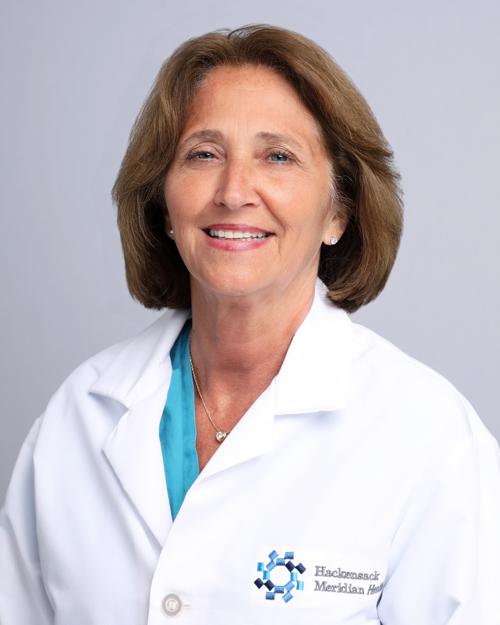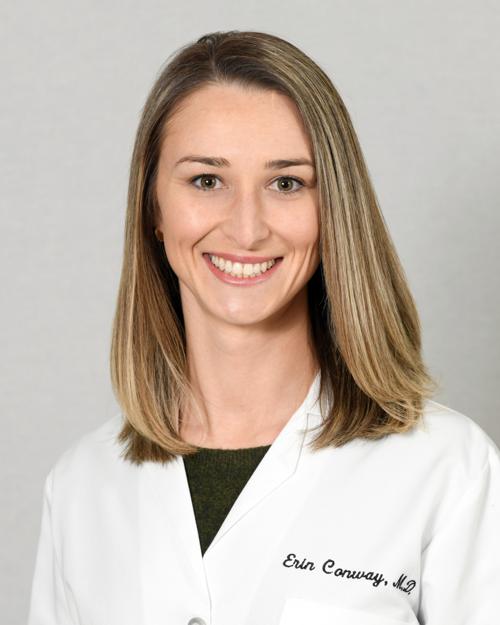Minimally Invasive Fibroid Treatment Helps Busy Mom

April 22, 2024
Heavy, continuous vaginal bleeding—which no amount of feminine products could contain—left Jennifer Biedinger in constant dread. For more than a year, the mother of two was on high alert at sporting and social events, fearful that blood would soak through her clothes and force her to leave.
“I had a couple of instances where I bled through everything I was wearing,” recalls the Little Silver, New Jersey, resident, a store manager at a local fashion boutique. “All sorts of everyday parent activities were affected, from cooking to driving to baseball games. Even walking our dog was problematic at times.”
The culprits—fibroids and polyps in her uterus—are common among women, especially during perimenopause. In her mid-40s, Jennifer fell squarely into this category, but she wanted to avoid the long recovery associated with a hysterectomy, one possible treatment.
Fortunately, Jennifer’s struggles were eradicated by a leading-edge, minimally invasive procedure called Acessa at Riverview Medical Center, one of the few places in New Jersey and only location in Monmouth County offering the innovative gynecological treatment.
Standout Offering for Fibroids
Frustrated by months of nonstop bleeding, Jennifer met with her longtime gynecologist, Kelly Hammond, M.D., Riverview’s chair of obstetrics and gynecology. Since Jennifer had been taking oral contraceptives, Dr. Hammond was initially perplexed about the bleeding’s cause.
“Because she was in such good health and on birth control pills, which should regulate her cycle, I was wondering, ‘What’s going on here?’” Dr. Hammond says.
Ultrasound imaging quickly identified that Jennifer had uterine polyps (an overgrowth of tissue in the lining of the organ) and fibroids (benign growths in the uterine muscle). Both can trigger heavy bleeding, among other symptoms. Hoping to significantly diminish Jennifer’s symptoms, Dr. Hammond performed an outpatient procedure called a hysteroscopy to remove the polyps while viewing them through a special scope. But it became clear within months, as Jennifer’s bleeding continued unabated, that another approach would be necessary.
Knowing Jennifer hoped to avoid a hysterectomy, Dr. Hammond referred her to Erin Conway, M.D., an OB/GYN at Riverview, who performs the Acessa procedure. Acessa shrinks fibroids using controlled heat with a technology known as radiofrequency thermal ablation. The outpatient, laparoscopic procedure, which is performed under general anesthesia, requires only a few small incisions in the abdomen.
“Recovery is a lot shorter for this procedure compared to a hysterectomy,” Dr. Conway explains. “It also offers lower surgical risks, like bleeding and injury to surrounding tissues. We offered Jennifer an option not available anywhere else in the area that allowed her to get back to normal life a lot faster.”
An ‘Optimal Choice’ for Fibroid Treatment
Indeed, Jennifer was able to go home a few hours after her procedure in June 2023 and happily returned to work and other normal activities within several days. This scenario stood in stark contrast to the six-week recovery she would have faced with a hysterectomy. “Acessa seemed like an optimal choice,” Jennifer says.
Even better are the gratifying results. Now 46, she no longer deals with excessive bleeding. “I’m not going to my sons’ baseball games needing to scout out bathrooms or carry extra clothes,” she says. “I keep feminine products in my bag, and don’t worry about my bleeding being embarrassing. Having a normal situation is fantastic.”
Her doctors expect Jennifer’s fibroids to continue to shrink over the coming year, and they shouldn’t regrow. “I was happy we had the Acessa available to her,” Dr. Hammond says. “It’s really great that Riverview is able to think ahead to what women in our community will need.”
Next Steps & Resources
- Meet our sources: Kelly Hammond, M.D., and Erin Conway, M.D.
- To make an appointment with an OBGYN near you, call 800-822-8905 or visit our website.
- Learn more about women’s health services at Hackensack Meridian Health.
The material provided through Healthier You is intended to be used as general information only and should not replace the advice of your physician. Always consult your physician for individual care.








